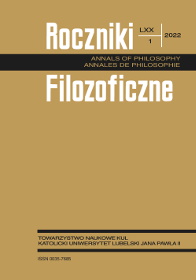Some Puzzles about Molinist Conditionals
Abstract
William Hasker has been one of the most trenchant and insightful critics of the revival of Molinism. He has focused on the “freedom problem”, a set of challenges designed to show that Molinism does not secure a place for genuinely free human action (Hasker 1986, 1995, 1999, 2000a, 2000b, 2011). These challenges focus on a key element in the Molinist story: the counterfactual (or subjunctive) conditionals of creaturely freedom. According to Molinism, these conditionals have contingent truth-values that are knowable to God prior to His decision of what world to actualize. This divine “middle knowledge” is supposed to enable God to execute a detailed plan for world history without any loss of creaturely freedom. Hasker has argued that this middle knowledge nonetheless deprives us of the power to do otherwise than we do, a crucial element in human freedom and responsibility.
I hope to accomplish three things in this paper. First, I want to step back a bit and explore the nature of the conditionals of creaturely free decision-making (the CCFs), bringing out some of the difficulties in delimiting their scope and nature. Second, I will explore the implications of different answers to an important question that has not been addressed in the literature: whether we have counterfactual power over the conditionals of divine freedom. And, third, I would like to recommend to Molinists a revision that offers a solution to the freedom problem.
References
Belnap, Nuel. 1992. “Branching space-time.” Synthese 92 (3): 385–434.
Belnap, Nuel, and Mitchell Green. 1994. “Indeterminism and the Thin Red Line.” Philosophical Perspectives (Logic and Language) 8:365–88.
Belnap, Nuel, Michael Perloff, and Ming Xu. 2001. Facing the Future: Agents and Choices in Our Indeterminist World. Oxford: Oxford University Press.
Cunningham, Arthur. 2016. “Where Hasker’s Anti-Molinist Argument Goes Wrong.” Faith and Philosophy 33:200–22. doi:10.5840/faithphil201633060.
Flint, Thomas. 1998. Divine Providence: The Molinist Account. Ithaca, NY: Cornell University Press.
Frankfurt, Harry. 1969. “Alternate Possibilities and Moral Responsibility.” Journal of Philosophy 66 (23): 829–39.
Hasker, William. 1986. “A Refutation of Middle Knowledge.” Noûs 20 (4): 545–57.
Hasker, William. 1999. “A New Anti-Molinist Argument.” Religious Studies 35 (3): 291–97.
Hasker, William. 1995. “Middle Knowledge: A Refutation Revisited.” Faith and Philosophy 12 (2): 223–236.
Hasker, William. 2000a. “Anti-Molinism Is Undefeated!” Faith and Philosophy 17 (1): 126–31.
Hasker, William. 2000b. “Are Alternative Pasts Plausible? A Reply to Thomas Flint.” Religious Studies 36 (1): 103–5.
Hasker, William. 2011. “The (Non)-Existence of Molinist Counterfactuals.” In Perszyk, Molinism, 25–37.
Hasker, William. 2017. “Molinism’s Freedom Problem: A Reply to Cunningham.” Faith and Philosophy 34 (1): 93–106.
Kvanvig, Jonathan. 2002. “On Behalf of Maverick Molinism.” Faith and Philosophy 19:348–57.
Lucas, J. R. 1989. The Future. Oxford: Oxford University Press.
Mackie, J. L. 1965. “Causes and Conditions.” American Philosophical Quarterly 2:245–64.
Øhrstrøm, P. 1984. “Anselm, Ockham, and Leibniz on Divine Foreknowledge and Human Freedom.” Erkenntnis 21:209–22.
Perszyk, Ken, ed. 2011. Molinism: The Contemporary Debate. Oxford: Oxford University Press.
Restall, Greg. 2011. “The Thin Red Line.” In Perszyk, Molinism, 227–38.
Rubio, Daniel. 2015. “Molinism’s Self-Undermining Problem.” Unpublished. Accessed September 4, 2021. https://www.danielkfrubio.com/papers.
Wierenga, Edward. 2011. “Tilting at Molinism.” In Perszyk, Molinism, 118–39.
Van Inwagen, Peter. 1986. An Essay on Free Will. Oxford: Oxford University Press.
Zimmerman, Dean. 2009. “Yet Another Anti-Molinist Argument.” In Metaphysics and the Good: Themes from the Philosophy of Robert Merrihew Adams, edited by Samuel Newlands and Larry M. Jorgenson, 33–94. Oxford: Oxford University Press.
Zimmerman, Dean. 2011a. “A Precis of ‘Yet Another Anti-Molinist Argument’.” In Perszyk, Molinism, 140–43.
Zimmerman, Dean. 2011b. “An Anti-Molinist Replies.” In Perszyk, Molinism, 163–86.
Copyright (c) 2022 Roczniki Filozoficzne

This work is licensed under a Creative Commons Attribution-NonCommercial-NoDerivatives 4.0 International License.





